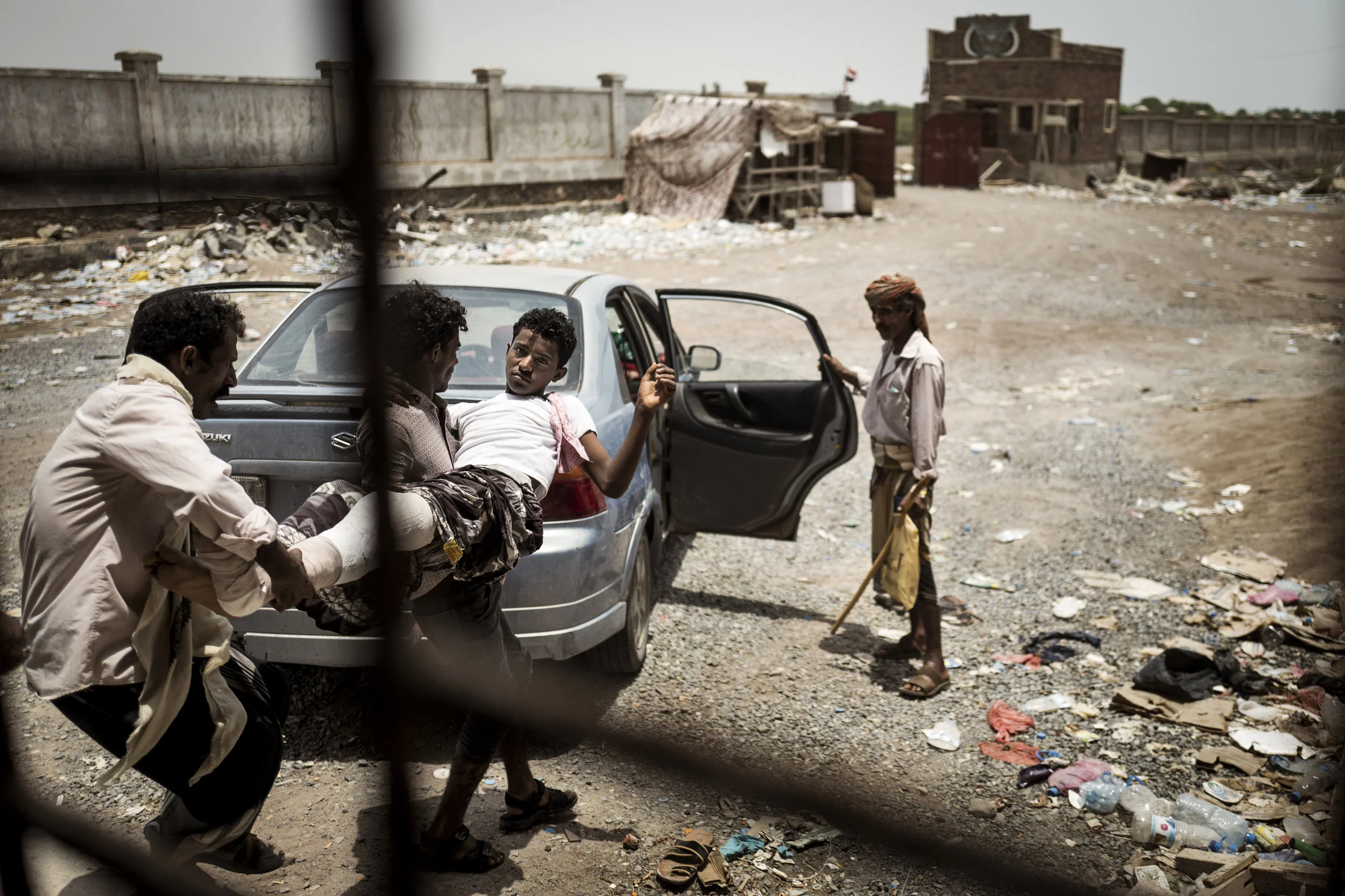
The forgotten country
Since March 2015 Yemen has been locked in a civil war between the Houthi movement in the north and the Hadi-government in the south.
Despite often being called ‘the forgotten war’ the consequences are very present for the people of Yemen. The UN estimates, that more than 22 million people are in need of humanitarian assistance, over two million people are internally displaced and Save the Children estimates that 85,000 children with severe acute malnutrition may have died.
A UN report estimats that 10,000 people have been killed as a direct consequence of the armed conflict, but according to the independent organisation ACLED the number of deaths are more likely over 60,000.
In December peace talks resulted in an armistice in the critical port city Hodeidah. This, however, does not solve the huge humanitarian crisis in the country. The UN calls it ‘the world's worst man-made humanitarian disaster.’

The UN estimates that the unemployment rate in Yemen can be as high as 50 percent in the hard-hit areas, and around 79 percent of the population lives in poverty. Despite this the khat industry in the country is still flourishing. These men sitting on the side of the road between Saada and Hajjah, chewing the mild narcotic green leaves, is not a special sight. The scenery repeats itself in areas all over the country, every afternoon.

Abdallah Ali Ahmed Algash is one of Yemen’s many internally displaced people. He fled his home in Hodeidah with his family of 56: his wife, 24 other adults and 31 children. The family sold everything they owned in order to afford the journey, and now they live in a camp for IDPs near the city of Abs in the Hajjah province in northern Yemen - without money and means to provide for themselves.

15 year old Fuad is carried out from the field hospital near the port city Hodeidah. The family’s car, is waiting outside. The boy has been in an accident with his motorcycle, and the doctors have put his leg in a cast. There’s no ordinary functioning hospital in the area, but even though Fuad has had to go through treatment in the spartan conditions of the field unit, he’s lucky. According to the UN less than 50 percent of Yemen’s health facilities are functioning, and in many areas people are forced to travel hundreds of kilometers to get medical attention.

The queue has collapsed. Women and men push to get to the front of the crowd, so they can get their share of the scarce aid rations from ADRA and UNHCR being distributed at the Abu Bakr al-Assadiq transit center. The buildings in Yemen’s old capitol city Sanaa used to be a school. Now they are housing 600 displaced people from the Hodeidah area, the center manager Hami Abdullah Fahem explains.

Akram is 15 years old and lies on an operating table in the field hospital near the frontlines in Hodeidah. The city has seen some of the fiercest clashes of the war thus far. Akram has been hit by fragments from a grenade.

Many of Yemen’s internally displaced people live under very tough conditions. The UNOCHA says that many are in desperate need of shelter, food, water and basic sanitation.
This is definitely true at the al-Fayush camp outside Aden. Here on this barren piece of land the landowner has given the IDPs permission to build small huts of tarpaulin, plastic sacs, tins and what else they’ve been able to scavenge in the area. Several of the women in the camp says that they have no sanitary facilities, and they wait to go to the toilet until nightfall where no-one can see them.

Ahmed Ibrahim is 65 years old and live at the Al-Shafaqa Center in Sanaa. At the center they help kidney and cancer patients that can’t afford treatment on their own. Ahmed has cancer and has lost his ability to speak. Center manager, Mohamed Shimsan, explains, that the center houses 80 patients and their families, but because of the war and the soaring medicine prices the center struggles to pay for the treatment and their rent.

Every ten minutes a child under the age of five dies in Yemen, according to the UN. Luckily Said is still alive. He’s nine months old and is being measured by the doctors at the triage unit at the Al-Jumhuri Hospital in Saada. He is 68 centimeters long and weighs 5,6 kilos. According to his doctor, dr. Ali Al-Gamadis, the boy should weigh twice that, and he is in serious need of medical attention. Said’s father, Minar Msfar Salem, has pawned his mobile phone to get the last money to pay for one day of treatment for his son. The bill amounts to 3,000 Yemen Rial or roughly ten and a half euros.

Nada Ajyah and her family were fleeing their home in Hodeidah, when the family’s car hit a roadside bomb. The 12 year old girl was killed on the spot.
